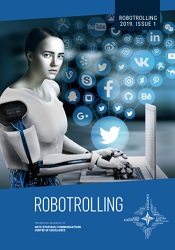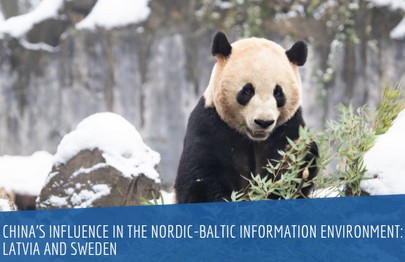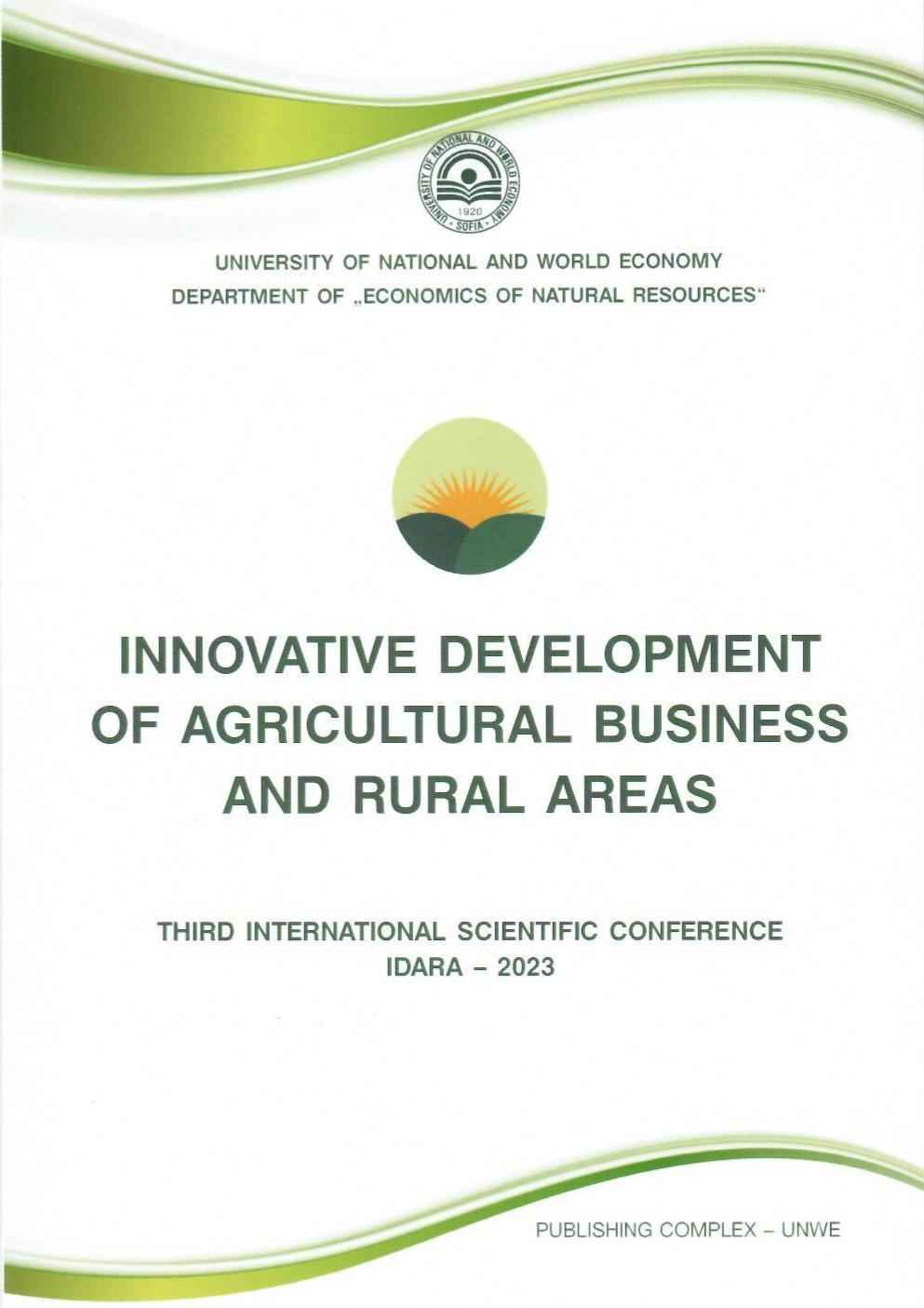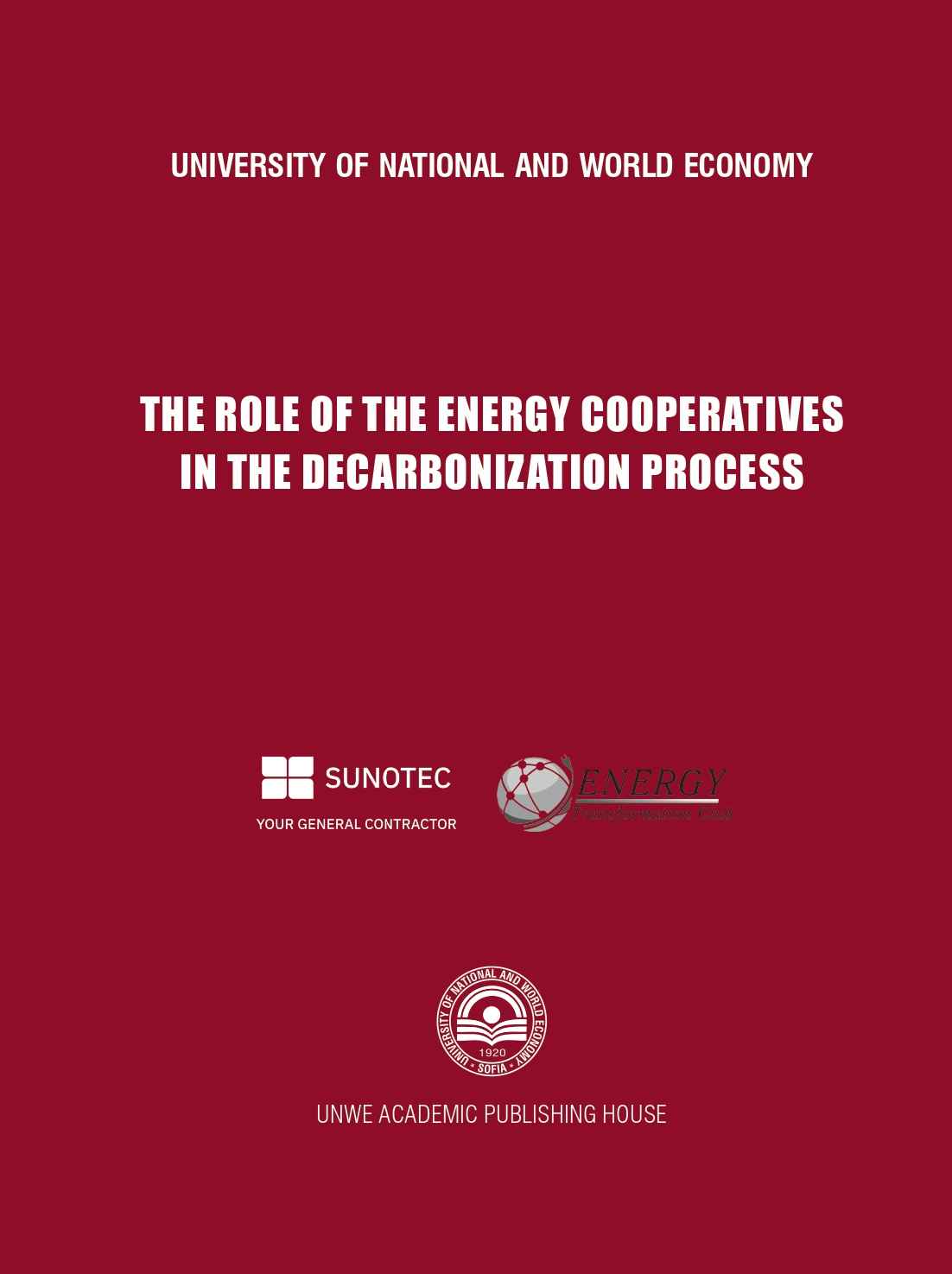
We kindly inform you that, as long as the subject affiliation of our 300.000+ articles is in progress, you might get unsufficient or no results on your third level or second level search. In this case, please broaden your search criteria.


Anonymous users stole the show this quarter. Never before have we observed such high levels of activity from anonymous accounts. At the same time, bot activity in Russian-language conversations about NATO activity in the Baltics and Poland has emerged from its winter slumber. In the wake of the Skripal poisonings in the UK in March, Russian-language bot and anonymous activity about NATO more than doubled. Mentions of NATO on VK, in contrast, have been stable and declining during the whole period. Social media companies are working to end platform misuse. But malicious activity is evolving. Today, anonymous accounts are dominating the conversation. These accounts are either operated manually, or they have become advanced enough to fool human observers. The responses from open and free societies to the problem of online malicious activity have neither been strong enough, nor consistent enough. Figures presented in this issue reveal a disparity between the conversation quality in English and Russian-language spaces. Currently, the Russian-language conversation about NATO in the Baltics and Poland has six times the proportion of content from bot and anonymous accounts. As Twitter has taken steps to remove bots, the disparity has only widened. We assess that 93% of Russian-language accounts in our dataset are operated anonymously or automatically. In no way does this conversation mirror opinions of citizens. Journalists, policy makers, and advertisers take note!
More...
This report presents top-level findings from the first research project to systematically track and measure the scale of inauthentic activity on the Russian social network VK. On VK, a vocal core consisting of loyal news media, pro-Kremlin groups, and bots and trolls dominates the conversation about NATO. The volume of material from this core group is such, that overall genuine users account for only of 14% of the total number of messages about NATO in the Baltic States and Poland. The spread of demonstrably fake content can offer a starting point for measuring how social media manipulation impacts genuine conversations. In the case of one story about a fictitious Finnish blogger, our algorithm estimates that at least 80% of users who shared the fake story were authentic. This quarter, messages appeared in more than 2 000 different group pages on VK. Setting aside messages from group pages, 37% of VK posts came from ‘bot’ accounts—software that mimics human behavior online. This level of activity is comparable to what we have seen on Russian-language Twitter. Unlike on Twitter, where the vast majority of human-controlled accounts are operated anonymously, on VK most accounts are likely to be authentic. Western social media companies have belatedly taken an active role in reducing the reach of the Kremlin’s social media manipulation efforts. However, it remains hard for researchers to evaluate the effectiveness of these measures on platforms such as Facebook and Instagram. In this context, VK offers a cautionary view of a network with minimal privacy, regulation, and moderation.
More...
President Trump’s whirlwind tour of Europe in July provoked ferocious discussion about NATO on social media. Anonymous human-controlled English-language accounts, expressing positions in support of or in opposition to the US President, dominated online conversations. Compared to the levels observed in the Spring issue of Robotrolling, the volume of English-language messages has more than doubled. The increasing proportion of anonymous accounts active during key political moments indicate that anonymity is being abused to cloak manipulation on social networks. We call on social media companies to keep investing in countering platform misuse. The social media companies Reddit and Twitter have released lists of accounts identified as originating from the notorious St Petersburg ‘troll factory’—the Internet Research Agency (IRA). In this issue, we present the first quantitative analysis comparing English- and Russian-language posts from these accounts. The IRA bombarded citizens in Russia and its neighboring states with pro-Kremlin propaganda. For English, fake accounts posed as Trump supporters, and argued both sides of the Black Lives Matter controversy. Russian-language material closely echoed and amplified the narratives popularized by Russian state-media. Amongst the accounts identified by Twitter, 26 also posted about NATO in the Baltics and Poland. Our algorithm correctly identified 24 of these as bot accounts. The other two accounts were anonymous human-controlled (troll) accounts.
More...
Given its rapid economic growth and expanded geopolitical ambitions, China’s influence projection has grown globally. The World Economic Forum projected that China may overtake the U.S. as the world’s largest economy by 2024. The Belt and Road Initiative (BRI), aimed at optimising and expanding China’s economic cooperation with the Eurasian continent, makes Europe a prime destination for Chinese investment. Countries in Europe have largely treated economic cooperation with China as an opportunity, and the Nordic-Baltic region (NB8) has not been an exception to this trend. However, several European countries have grown apprehensive regarding China’s intents, as economic cooperation has become a backdrop to undesirable political influence via bilateral and multilateral fora. At the same time, buoyed by pride from its rapid economic growth, the Chinese Communist Party (CCP) has become more assertive in defending its national interests, including in the South China Sea region and in response to Western critics of China’s expansionist foreign policy, undemocratic practices and human rights violations. In reaction to these developments, a growing number of European countries have started to look at China’s activities as a challenge or threat to national security. This shift has also become increasingly visible among the countries of the Nordic-Baltic region.
More...
The present study is devoted to the problems related to the selection and implementation of digital educational platforms. The process is complex and difficult and very much depends on benchmarking. In order for this analysis to be effective, it is necessary to define the requirements for the software tools in advance. In conclusion, conclusions from the empirical analysis are formulated.
More...
This paper explores the roles of data management and open science in enhancing digital technologies at universities. It examines how these practices support the integration of advanced tools like big data analytics, machine learning, and immersive technologies such as virtual reality (VR) and augmented reality (AR). Effective data management ensures data accuracy, security, and accessibility, facilitating robust research and efficient operations. Open science promotes transparency, collaboration, and the democratization of knowledge, accelerating innovation and enhancing research reproducibility. The paper reviews current practices, challenges, and benefits, highlighting the synergies and conflicts between data management and open science. Despite challenges such as funding constraints, cultural resistance, technical barriers, and data privacy concerns, adopting robust data management and open science practices is essential for leveraging digital technologies in higher education. Recommendations for universities include investing in infrastructure, fostering a culture of openness, developing clear policies, and promoting collaboration. These strategies are crucial for advancing research capabilities and educational outcomes in the digital age. This work underscores the importance of continuous adaptation to keep pace with technological advancements and ensure effective support for digital transformation at universities.
More...
The relevance of the topic is associated with the increasing popularization of alternative sources of financing of entrepreneurial activity. Under the current conditions, the search for means to finance entrepreneurial activity is a priority task for both entrepreneurs and state institutions, oriented towards supporting existing and potential businesses. The purpose of the article is to describe the application of crowdfunding as one of the tools for alternative financing of projects in the current realities of building a digital economy in Moldova. The article describes the legal aspects of crowdfunding regulation as a new for Moldova legal institute of non-banking lending using the possibilities of online platforms. The paper considers the economic and legal essence of crowdfunding, the model of functioning of this institution, the opinion on the main advantages and disadvantages of this alternative type of lending, as well as outlines the prospects of development and possibilities of application of the new financial technology in our country.
More...
Verbal communication (WOM-Word of Mouth) is a current marketing tool, the main purpose of which is communication and socialization, followed by the promotion and sale of products that takes place face to face between sellers and buyers. With the advent of the Internet, WOM turns into eWOM, that is, electronic word-of-mouth communication that takes place between online sellers and online buyers through social networks and online store pages. Buyers can exchange online messages, experiences, reviews and leave rated reviews for products they have already purchased online. This new mode of eWOM communication has great potential to influence online purchase intentions. In this context, the purpose of this paper is to analyze and investigate the impact of eWOM communication on online shopping intentions. As determinants of online messages, which are transmitted through social networks and websites of online stores, the following are analyzed: quality of messages, credibility of messages, needs and attitudes of buyers to messages, usefulness of messages. messages and acquisition of messages by online shoppers. In this research, the determinants of online messages are derived from the Consumer Attitudes and Needs Acquisition Model (IACM), which is also the research model of this paper, on the basis of which the impact of messages is investigated. on online shopping intentions. Finally, by applying adequate statistical methods, an analysis of two online eWOM communication platforms was made, to determine whether messages transmitted through online stores' Facebook pages have a greater impact on online purchase intentions than broadcast messages. through the means of communication of the websites of the online stores or vice versa. The research results provide useful conclusions for marketers, in terms of adapting their online marketing strategies for successful promotion and sales of products on Facebook and online store websites.
More...
The aim of the current paper is to examine theoretically the possibility robots to be treated as subjects under Bulgarian tax law. For this purpose, the author will outline the main hypotheses following the tax specifics of the legal personality. Taking into account the relevant provisions of the Bulgarian tax law acts, he will draw conclusion on the future tax treatment of robots.
More...
Bulgarian agriculture has gone through many transformations in the last two decades. The concentration of production and the difficult access of smaller farms to forms of public support led to their unequal competitive position. Some owners of such small farms began to seek support and advice from other producers, exchange experiences and organize joint actions. Social networks are also used for these new forms of cooperation, as a popular tool for building groups and communication between their members. The purpose of the present study is to evaluate the models for the application of social networks as a tool for the cooperation of agricultural producers in Bulgaria. In order to achieve this goal, it is necessary to solve the following tasks: to assess the need for producers to cooperate; to analyze the implemented traditional forms of cooperation in the country, revealing their deficiencies; to consider specific examples of the application of social networks, as a tool for cooperation of producers from the agriculture sector in Bulgaria. Social networks, or social media platforms have been a focus of analysis since their launch and in later years some meta studies and literature reviews have attempted to organize and structure most of the previously done research on the topic (Ali, et al. 2023; Ibrahim, 2022). In these studies, the five main topics of discussion have been: social media, social collaboration, social marketing, social media and crowdfunding, and social media and crowdsourcing. Social media as a tool for crowdsourcing can be used by different stakeholders to share crucial information (Clark, et al., 2023) and in those cases a cooperation among social actors can be built. The negative effects of social media on traditional network-building have also been explored by some authors, that put forward concerns about the differentiation of goals between social media platforms and their userbase, that can lead to degradation of social cohesion (González‐Bailón, et al., 2023). Although being critical, those researchers can’t deny that social media platforms are granting opportunities that would be absent without them. Furthermore, if academics have access to social media analytics tools a more in-depth analysis of information sharing and social impact can be developed (Horng, et al., 2023). The lack of access to such tools for the current research has led to the selection of included observation for the analysis of the application of social networks as a tool for the cooperation of agricultural producers in Bulgaria. Social media interactions remain an understudied topic in the country and its relevance as a cooperation building tool remains to be proven.
More...
This report outlines work and employment through online platforms in four member countries of the European Union – Bulgaria as part of Eastern Europe and Sweden, Spain and Portugal as part of Western Europe. It is based on a review of existing publications on the topic, as well as a small number of in-depth interviews with food delivery platform workers in Bulgaria. The report first explains the two main developments of technological transformation, then considers the meaning of online labor platforms, quality of labor, concludes by comparing the four countries in terms of status, payment, prevalent type of service provision, satisfaction, workers profile, representation and protection, and share of online platform workers.
More...
The current study is focused towards the phenomenon „Digital divide“, as a new form of social divide and inequality in contemporary information (Toffler), networked (Castells), post-industrial (Bell) society. The study has a referential-analytical character insofar as it presents the results of a literature analysis of the main scientific studies of the problem of „digital divide“, looking for the characteristic definitional outlines of the phenomenon, on which to propose a working definitional basis of the concept. Based on the referential analysis, suggestions for indicators of digital divide are derived, analogous to Weber's classical indicators of social division in society – material status, power and authority.
More...
The rapid transformation of the energy sector, driven by the adoption of renewable energy sources and the need for efficient management systems, has led to the emergence of smart energy grids. Blockchain technology, known for its decentralized and immutable characteristics, presents a promising solution for revolutionizing billing systems in energy communities. Focusing on what impetus blockchain can bring for increasing transparency, speeding up processes, and incepting trust among stakeholders, this paper explores the possible applications of blockchain to energy billing systems. The present paper does this by giving evidence from case studies – including but not limited to the Prosume project in Italy, LO3 Energy's Brooklyn Microgrid, and Power Ledger's xGrid platform – that clearly show the benefits of blockchain in enabling peer-to-peer energy trade automating billing processes, and improving data security. More importantly, it does so by inspiring the audience with the potential impact; blockchain technology contributes significantly to promoting sustainable energy practices. Equipping energy billing systems with blockchain technology will promote sustainability and improve productivity with only concerns related to scalability and some regulations. To help foster a wider adoption of blockchain solutions within smart energy grids – this study closes with recommendations for future research, standard development and regulatory framework.
More...
This volume contains papers from a scientific conference held on 29 April 2025, dedicated to the fiftieth anniversary of the establishment of the Department of Economic Sociology at the University of National and World Economy. A special place is devoted to the relationship between sociological science and economics, as well as to the possibilities of applying an interdisciplinary approach to the study of current development problems. The second thematic focus concerns the role of institutions and public policies in achieving economic and social progress in the context of global transformations. It is in such a context that topics related to economic education and training, changes in the world of work, and the governance of business organizations are addressed. The collection of papers also covers other topics traditionally among the objects of study in economic sociology, such as the criminal economy, violence, migration, health and quality of life. Containing an impressive total of 105 papers, the collection will be of interest to a wide audience - academics, researchers, undergraduate and postgraduate students, and anyone intellectually engaged with the complex interplay between social and economic phenomena and processes. Last but not least, more than 40 of the papers included in the collection are by undergraduate and postgraduate students - an expression of the principle of continuity between the past, the present and the future.
More...
In the era of Marketing 5.0, digital technologies and social dynamics are intertwined, creating new challenges and opportunities for business and society. Internet sociology studies the impact of online communication, social networks and digital platforms on consumer behaviour, trend formation and brand building. This study examines how social interactions in digital environments are transforming marketing strategies, focusing on personalization, artificial intelligence, and the ethical aspects of digital advertising. Key issues such as the penetration of the metaverse into everyday life, work, and education are analyzed, shaping the future of digitization. The paper highlights the importance of internet sociology as a tool for understanding new patterns of consumer behaviour and creating effective marketing strategies in a dynamic digital society.
More...
In the contemporary era, virtual space is undergoing a progressive transformation, with Industry 4.0 technologies providing novel opportunities for innovation and industrial development. The goal of this paper is to elucidate the concept of the „industrial metaverse“ through a systematic review of recent literature on the subject. The paper presents and discusses theoretical aspects of the metaverse and their development within Industry 5.0; working definitions of the concept of the industrial metaverse and its possible applications both in the present and in the future; and potential impacts on the Sustainable Development Goals. This research has the potential to contribute to the field of economic science by offering a different understanding of the concept of an industrial metaverse.
More...
Interactive learning methods are relatively new to the educational system in our country, having entered the post-pandemic period. They are emerging as the future of teaching and are attractive in the way the learning process itself is conducted, leading to learner engagement. With the increasing scope of Industry 4.0 and the emergence of information and communication technologies as an integral part of our daily lives, they are a prerequisite for considering them as an opportunity to provide an educational service adequate for their time.
More...
The adoption of educational Extended Reality (XR) represents a significant and promising development in the future of immersive technologies. This paper examines the transformative impact of XR in economic education and training, and its potential to change immersive teaching and learning. The results of the study highlight the future of XR as an immersive educational approach in higher education and research organisations. The conclusion outlines the key role of XR as a catalyst for the evolution of economic education and learning, transforming traditional learning environments into dynamic, immersive spaces that improve educational outcomes, optimize teaching and learning methodologies, and expand access to education and learning for stakeholders.
More...
Digital sociology studies how technology influences social interactions,including online shopping. In Bulgaria, e-commerce is expanding dynamically, with more and more consumers preferring online platforms for purchasing goods and services. This study analyzes the socio-demographic characteristics of online shoppers, their motivations, and the factors that determine their trust in digital retailers. The study examines how social networks and online communities shape consumer attitudes and influence decision-making. It also looks at social inequalities in access to online commerce and the challenges associated with digital literacy. In conclusion, the study offers a critical insight into current trends and opportunities for improving trust and security in Bulgarian e-commerce.
More...